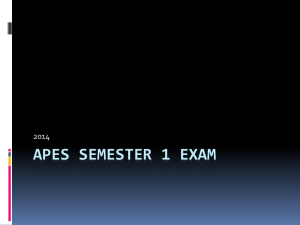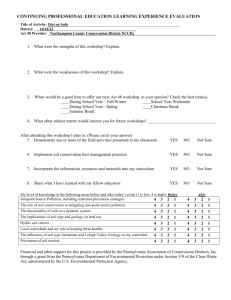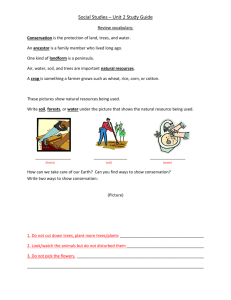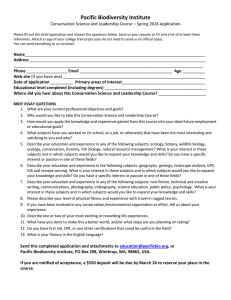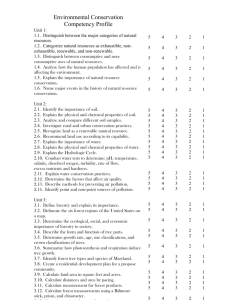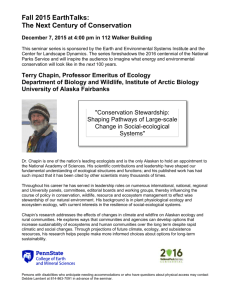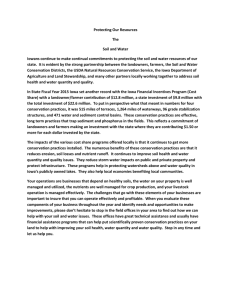Course Outline
advertisement
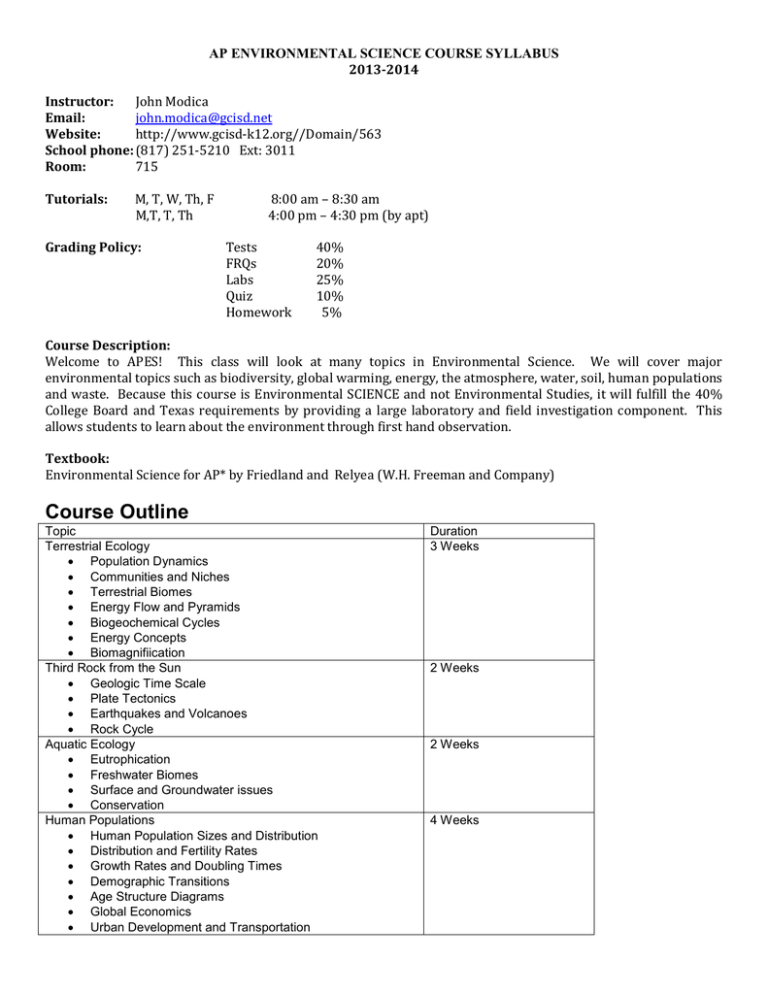
AP ENVIRONMENTAL SCIENCE COURSE SYLLABUS 2013-2014 Instructor: John Modica Email: john.modica@gcisd.net Website: http://www.gcisd-k12.org//Domain/563 School phone: (817) 251-5210 Ext: 3011 Room: 715 Tutorials: M, T, W, Th, F M,T, T, Th Grading Policy: 8:00 am – 8:30 am 4:00 pm – 4:30 pm (by apt) Tests FRQs Labs Quiz Homework 40% 20% 25% 10% 5% Course Description: Welcome to APES! This class will look at many topics in Environmental Science. We will cover major environmental topics such as biodiversity, global warming, energy, the atmosphere, water, soil, human populations and waste. Because this course is Environmental SCIENCE and not Environmental Studies, it will fulfill the 40% College Board and Texas requirements by providing a large laboratory and field investigation component. This allows students to learn about the environment through first hand observation. Textbook: Environmental Science for AP* by Friedland and Relyea (W.H. Freeman and Company) Course Outline Topic Terrestrial Ecology Population Dynamics Communities and Niches Terrestrial Biomes Energy Flow and Pyramids Biogeochemical Cycles Energy Concepts Biomagnifiication Third Rock from the Sun Geologic Time Scale Plate Tectonics Earthquakes and Volcanoes Rock Cycle Aquatic Ecology Eutrophication Freshwater Biomes Surface and Groundwater issues Conservation Human Populations Human Population Sizes and Distribution Distribution and Fertility Rates Growth Rates and Doubling Times Demographic Transitions Age Structure Diagrams Global Economics Urban Development and Transportation Duration 3 Weeks 2 Weeks 2 Weeks 4 Weeks Biodiversity Species Diversity Preservation, Remediation, Mitigation, Restoration, Conservation Habitat Loss Exotic Species Endangered and Extinct Species Deforestation Economic Impacts and Decisions Public and Federal Lands Relevant Laws Nonrenewable Resources and Energy Energy Forms, Units and Conversions History and Global Energy Use Mining Fossil Fuel Resources and Use Nuclear Energy Renewable Energy Energy Conservation Economic Impacts and Decisions Soil Formation and Composition Physical and Chemical Properties Soil Types Erosion and Other Soil Problems Conservation Forestry, Agriculture and Rangeland Water Pollution Sources, Causes and Effects Surface and Groundwater Issues Cultural Eutrophication Water Purification Sewage Treatment Human Health Risks Clean Water Act and Other Laws Air Air and Noise Pollution Smog Acid Deposition Indoor Air Pollutants Clean Air Act and Other Laws Human Health Risks Stratospheric Ozone and Ozone Depletion Global Warming Economic Impacts Pesticides Types of Pesticides Costs and Benefits of Pesticide Use Hazards to Human Health Hazardous Chemicals Integrated Pest Management Relevant Laws Meteorology Seasons Solar Intensity and Latitude ENSO Weather and Climate Atmospheric Circulation and the Coriolis Effect 2 Weeks 3 Weeks 2 Weeks 2 Weeks 2 ½ Weeks 2 ½ Weeks 2 Weeks Marine Ecology Saltwater Ocean Circulation Global Problems Fishing Techniques Overfishing Relevant Laws and Treaties Waste Management Solid Waste Disposal and Reduction Hazardous Chemicals and Waste 2 Weeks 2 Weeks Materials: 1 subject spiral with pockets, 2 rolls of paper towels, 1 box of tissue, 1 bottle of hand soap or hand sanitizer. All students must have enclosed shoes for labs – that means the TOE and the HEEL area are covered. Homework: Homework may be assigned every day. All homework will be assumed as due the next period, unless instructed otherwise. All assignments will be available on my website including the help sheets I pass out. Most of these help sheets are for that purpose and cannot be used on tests or quizzes. I will supply these same help sheets during quizzes and tests, you cannot use your own copies. Makeup work: Each assignment will be placed in a makeup folder assigned to your class period. The assignment will be tagged with your name, the topic covered, and the date the topic was assigned and due. Pick up your work in the file the first day you return – it will be marked as makeup work by myself so I will know it is not late. This work must be returned the following class period, or the appropriate time according to the student handbook, or it is considered late. APES Expectations: This course will help the students to understand chemical concepts dealing with elements of the periodic table and combining that knowledge in various laboratory experiments while applying the scientific method. In order to create an atmosphere to promote learning, it is necessary to have certain rules in place. Please read these rules understand their importance to your success. 1. 2. 3. 4. 5. Be courteous and respectful to others and their property. Always be ready to participate, share, and help in class. Nothing gets in the way of learning. Be on time to class and prepared with all materials. Cell phones, iPods, and other electronic device must be SILENCED and PUT AWAY in class. If I see one, I will confiscate it and turn it in to the administration. Discipline policy for rule violation: 1st offense: Verbal warning 2nd offense: Phone call home 3rd offense: Possible Office Referral, phone call home
